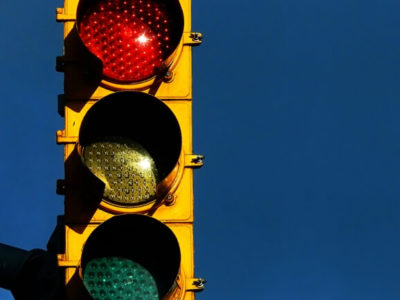We all learned years ago that when you see a red light, you need to stop or there will be consequences. Unfortunately, when it comes to procrastination, there are no red and blue flashing lights seen in the rearview mirror. Because no one is policing us, we must create are own red lights to procrastination and follow them as if they’re the law.
In order to establish these red lights though, we must first understand what gives us the go-ahead to procrastinate in the first place and then come up with a plan.
Green Light: We do it because we think we work better under pressure.
Red Light: To stop it, try to do an assignment ahead of time and pace your work. Charles Meneveau, Louis M. Sardella Professor of Mechanical Engineering and Director of CEAFM at Johns Hopkins University, recommends developing “the ability to set oneself ‘auto-deadlines,’ so that you can work with the same intensity and efficiency but still a few days before the deadline.” This strategy will also allow for time to come in and ask your professor or T.A. questions, says Meneveau.
Green Light: We do it because we think we deserve a break.
Red Light: To stop it, allow time for breaks and make sure that you accomplish all of your work in between. Even better, Anna Band, sophomore at Oberlin College, will take a productive study break such as going to the gym or doing her laundry. “[She finds] these types of breaks to be more practical than playing computer games or watching a short TV show because it’s easier to transition back to [her] work.”
Green Light: We do it because we are too busy with other things.
Red Light: To stop it, use a paper calendar, iCal, or Google calendar to write down when your commitments are, and plan your studies around them. Stacy Berg, sophomore at Brandeis University suggests that her procrastination is not “usually that bad when [she] enjoy[s] the topic,” so make sure you choose your classes wisely; then, organizing your planner should be easier than ever.
Green Light: We do it because our friends are, and we don’t want to be left out.
Red Light: To stop it, organize a study party with friends, and make the studying and snacks the main event. Max Meneveau, sophomore at Cornell University, says “[f]or my anatomy midterm I studied with a friend, and we quizzed each other to see who knew the most. The competition helped keep us studying and was actually kind of fun! It paid off because we were able to study for hours at a time without taking too many long breaks.”



















